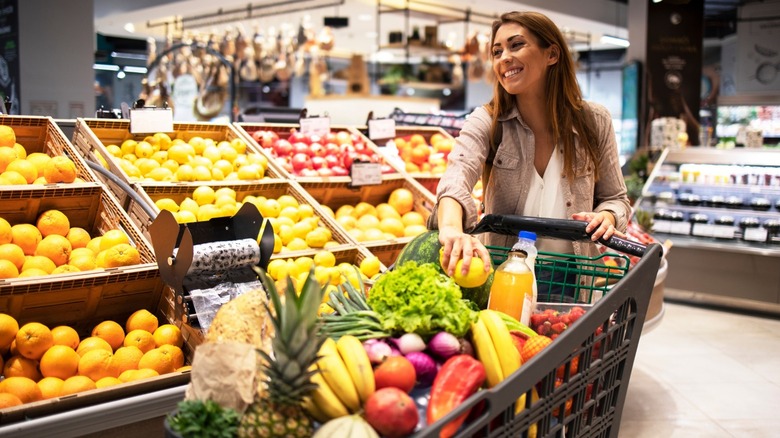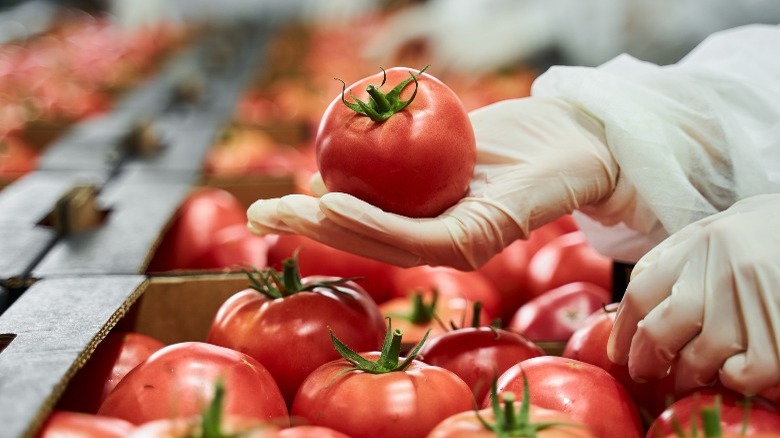What 'Local' Actually Means At Grocery Stores
Grocery stores have gone through several modifications during their history in the United States, shifting from small general stores to sprawling supermarkets (per Stacker) and in some ways, coming full circle to emphasize local products again. However, the exact definition of what is a local product is something you might be wondering about.
Some of the greenest grocery stores in the U.S. aren't necessarily the best spots to get fresh produce and other perishable foods. As the University of Maryland Medical System points out, hitting up a farmers market might be a better choice because the products sold there tend to be fresher. At the same time, those markets might not have everything you need to complete your menus, or a grocery store might simply be more convenient.
If you find yourself in a grocery store and buying local products is a priority for you, it probably would interest you to learn what the term is relative to where you shop.
Local variances on the use of the word 'local'
Different words can carry different connotations in various regions. For example, HuffPost in 2012 examined which parts of the United States refer to sugary soft drinks as "coke," "pop," or "soda." In the case of products deemed local by grocery stores, it's important to consider where you're at, too. As HuffPost stated in 2013, there is no regulation attached to grocery stores' use of the word "local." Each store can have its own policy.
ABC10 took a look at the use of the term among grocery stores in 2018 and showed how the parameters can vary wildly, even within the same area. Raley's stores in northern California only specified food harvested from within a 50-mile radius as part of a "Living Local" designation. Sprouts Farmers Market in and around Sacramento, on the other hand, denoted anything produced within 500 miles as "local."
Grocers aren't the only ones with a loose definition of local. Grocery Dive reported in 2019 on a Nielsen survey that revealed shoppers don't have one uniform understanding of the term, either. The Nielsen survey showed shoppers had different expectations for different products. For example, respondents considered meat from anywhere in the same state as local while for baked goods, they had to be from within the same city.
It's unclear if the government will ever set rules about what exactly makes a product local. Until such a time, it's all a matter of how each individual store chooses to define it.

